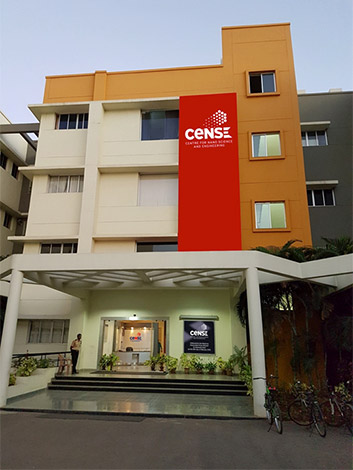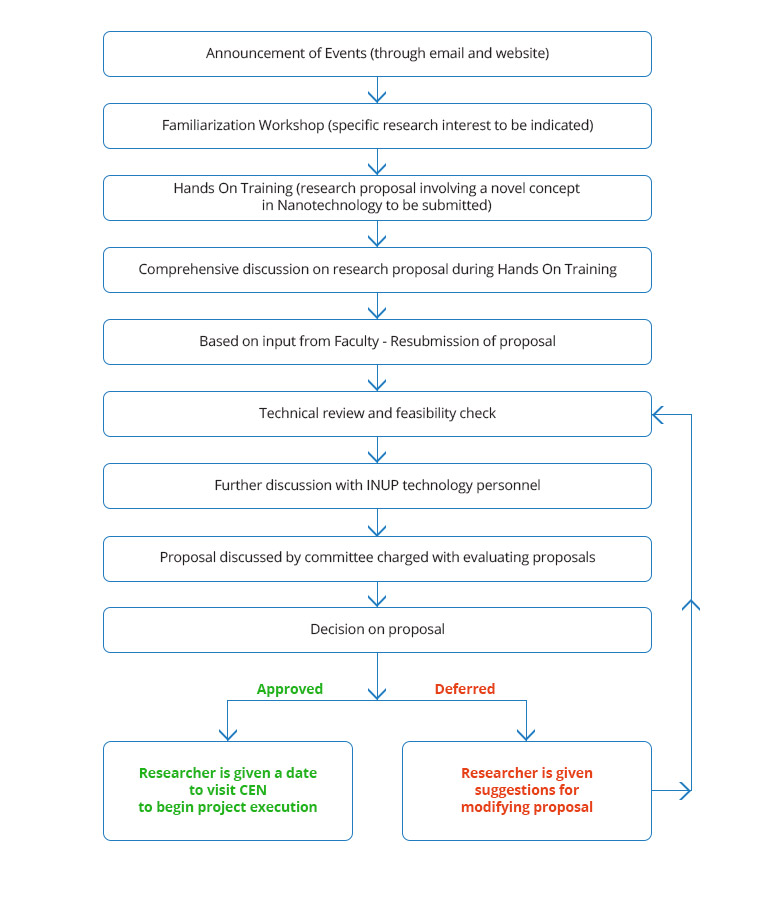About INUP
Beginning of the 21st century has witnessed a tremendous upsurge of scientific activity in the field of 'Nanoscience' and 'Nanotechnology', whose seeds were sowed in the last century. Scientists, technocrats and even governments of many countries all over the world are convinced that 'Nanotechnology' based on 'Nanoscience' is the technology of the 21st century. Nanoelectronics is the most advanced of the Nanotechnologies and products using Nanoelectronics are appearing in the market. Many of the countries in the world are embarking on ambitious programs on Nanoelectronics to address the needs of tomorrow's technologies. Centers of Excellence in Nanoelectronics (CEN) established in 2006 at Indian Institute of Science, Bengaluru (IISc) and IIT, Bombay (IITB) may be considered one among them.
The Ministry of Electronics and Information Technology's (MeitY) support to CEN at IISc and IITB has enabled the process of creating a significant infrastructure, which has promoted research and training in the area of nanoelectronics in India. Although the major focus of this project is research and training of in-house researchers and students at these Institutes, the facilities created under such national initiative is also available to researchers and students from other institutions, laboratories and industry.

After IISc and IITB, MeitY initiated nano centers at IIT Madras (IITM) and IIT Delhi (IITD) in 2011, as well as one at IIT Guwahati (IITG) in 2015. In 2018, the nano centers at IISc, IITB, IITD, IITM, along with the facility at IIT Kharagpur (IITKgp), were brought under one umbrella - the Nanoelectronics Network for Research and Applications (NNetRA) - supported for four years thence by MeitY and DST combined. Now, with the benefit of the INUP experience and with support from MeitY, all six nanocenters, viz. at IISc, IITB, IITD, IITG, IITKgp and IITM has come under one umbrella to open up their facilities to the nation. This new program,'Indian Nanoelectronics Users' Programme - Idea to Innovation' (INUP-i2i) will take the 'open national nano centers' concept to the next stage, while retaining the key aspects of training at different levels introduced in INUP. For more details about this programme, please click here
We are running a similar program funded by Ministry of Education, Govt. of India which is also named as INUP.
Below are the INUP websites of the other nanocenters:

In INUP, users will receive training through the following three levels:
Apart from supporting the ‘Research and Innovation Projects’ aimed at academic researchers for executing thesis and research, INUP-i2i shall also support a substantial number of ‘Innovation Projects’ with startup potential. The selection criteria for ‘Research and Innovation Projects’ will continue to be scientific novelty and rigor, whereas the selection criteria for ‘Innovation Projects’ will be translation potential and societal/industrial/strategic relevance. These will be Application-oriented projects - from the Individual Researchers, the Hackathon Winners (comprising GRAND CHALLENGES from different application areas, e.g., strategic, healthcare, agriculture, energy & environment) and the Collaborating Institutes.
1. Startup support: This support is for already incubated startups that need micro/nanofabrication and characterization facilities. INUP-i2i will provide continuous technical support for about three years. During this period, technical training, and help in fabrication, optimization, & characterization of devices/systems will be provided. IISc invited the applications and have selected the below startups/ MSMEs to be supported under this program:
2. Collaborating Institutes: With the goal of expanding the nanoelectronics/ semiconductor ecosystem in the country, INUP-i2i includes a new model of institute-to-institute engagement along with the six implementing nano centers functioning as hubs connected to a network of Collaborating Institutes. IISc will identify 7 such partners which will comprise institutes from South zone, along with a few from under-served regions of India e.g., the North-East. The engagement will aim for broad and deep R&D collaboration, possibly resulting in joint publications/ patents. IISc invited the applications and have selected the below institutes to be supported under this program:
